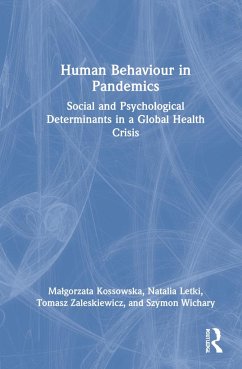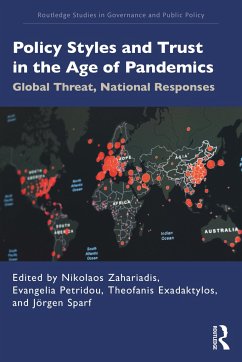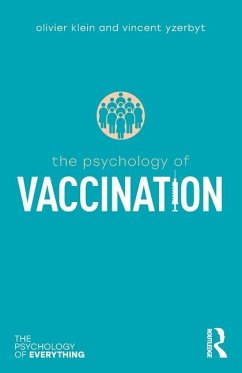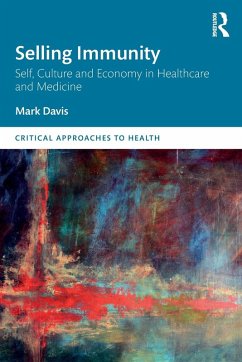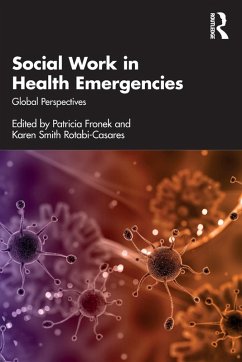
Human Behaviour in Pandemics
Social and Psychological Determinants in a Global Health Crisis
Versandkostenfrei!
Versandfertig in 6-10 Tagen
36,99 €
inkl. MwSt.
Weitere Ausgaben:

PAYBACK Punkte
18 °P sammeln!
This timely interdisciplinary book brings together a wide spectrum of theoretical concepts and their empirical applications in relation to the COVID-19 pandemic, informing our understanding of the social and psychological bases of a global crisis.Written by an author team of psychologists and sociologists, the volume provides comprehensive coverage of phenomena such as fear, risk, judgement and decision making, threat and uncertainty, group identity and cohesion, social and institutional trust, and communication in the context of an international health emergency.The topics have been grouped i...
This timely interdisciplinary book brings together a wide spectrum of theoretical concepts and their empirical applications in relation to the COVID-19 pandemic, informing our understanding of the social and psychological bases of a global crisis.
Written by an author team of psychologists and sociologists, the volume provides comprehensive coverage of phenomena such as fear, risk, judgement and decision making, threat and uncertainty, group identity and cohesion, social and institutional trust, and communication in the context of an international health emergency.The topics have been grouped into four main chapters, focusing on the individual, group, social, and communication perspectives of the issues affecting or being affected by the pandemic, based on over 740 classic and current references of peer-reviewed research and contextualized with an epidemiological perspective discussed in the introduction. The volume finishes with two special sections, with a chapter on cultural specificity of the social impact of pandemics, focusing specifically on both Islam and Hinduism, and a chapter on the cross-national differences in policy responses to the current health crisis.
Providing not just a reference for academic research, but also short-term and long-term policy solutions based on successful strategies to combat adverse social, cognitive, and emotional consequences, this is the ideal resource for academics and policymakers interested in social and psychological determinants of individual reactions to pandemics, as well as in fields such as economics, management, politics, and medical care.
Written by an author team of psychologists and sociologists, the volume provides comprehensive coverage of phenomena such as fear, risk, judgement and decision making, threat and uncertainty, group identity and cohesion, social and institutional trust, and communication in the context of an international health emergency.The topics have been grouped into four main chapters, focusing on the individual, group, social, and communication perspectives of the issues affecting or being affected by the pandemic, based on over 740 classic and current references of peer-reviewed research and contextualized with an epidemiological perspective discussed in the introduction. The volume finishes with two special sections, with a chapter on cultural specificity of the social impact of pandemics, focusing specifically on both Islam and Hinduism, and a chapter on the cross-national differences in policy responses to the current health crisis.
Providing not just a reference for academic research, but also short-term and long-term policy solutions based on successful strategies to combat adverse social, cognitive, and emotional consequences, this is the ideal resource for academics and policymakers interested in social and psychological determinants of individual reactions to pandemics, as well as in fields such as economics, management, politics, and medical care.





